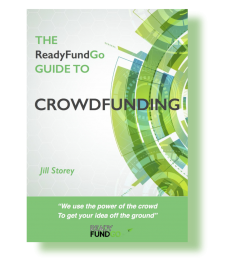I was recently asked at a family gathering if GST (the Goods and Services Tax) applied to crowdfunding. Not your everyday question I must admit, but given my area of expertise and my interest in technology start-ups, you could see why I was asked. I was about to dismiss it out of hand when I realised the myriad of variables I had to consider before I could say definitively yea or nay. In the end, I offered up a feeble “It depends …” – that old refuge of the legally baffled.
To properly understand how GST applies to crowdfunding, we need to start by understanding what the GST is. At its most basic, it is a tax levied on enterprises in Australia in relation their sales of goods and services, i.e. when an enterprise receives payments from their customers, a proportion of the price received is paid to the tax man as GST. In Australia, that proportion is 1/11th (arising from a GST rate of 10%). Of course there are some exemptions from the GST – the more well known ones being food, health and education, although residential rents, exports and financial supplies are also outside the net, but these are less well known.
What has that got to do with crowdfunding? Well, seen through that lens, we need to be alive to the prospect that the contribution received by a project promoter or entrepreneur via crowdfunding may be up for a 1/11th haircut because it is to be treated as the price paid in return for goods or services that are subject to GST.
You can imagine the rude shock when you realise that the $100,000 you just raised is only worth $90,909 – the rest being payable to the Tax Office on account of the GST. Too late to go back to your supporters to say you meant to ask for $110,000.
Working it out
So, to work out if GST applies we need to ask two particular questions of our project promoter or entrepreneur, namely (i) whether they are carrying on an enterprise in Australia, and (ii) whether the goods or services they provide (if any) are subject to, or exempt from, the GST.
- Carrying on an enterprise in Australia?
The GST is concerned with taxing activities of enterprises and not those of individuals (e.g. hobbies, pastimes or recreational pursuits). And for the purposes of this discussion, we will assume our promoter or entrepreneur is in Australia and undertaking activities here. If not, it is very unlikely he, she or it would be caught by the Australian GST net – funds raised by them, even on an Australian platform, are unlikely to be subject to GST.
However, for an Australian based promoter or entrepreneur, they will need to be aware that if what they are doing goes beyond a hobby, pastime or recreational pursuit, then their activities might trigger a requirement for them to register for GST if their expected annual turnover (sales) exceeds $75,000 p.a.
Therefore as a starting point, if you (being the promoter or entrepreneur) are not carrying on an enterprise, or your enterprise is not expected to exceed $75,000 p.a. in sales, then you will not be required to register for GST and you will remain outside the GST net. Any funds raised while in this state of being would not be subject to GST, irrespective of the goods or services provided for the funds.
- What goods or services are provided in return for the funding?
If, however, the entrepreneur is required to register for GST because the enterprise is expected to exceed the $75,000 p.a. sales threshold, then it becomes very important to understand what is being provided in return for the funding, i.e. is it something that would be subject to GST or would it be exempt from GST? This is where the different crowdfunding models come in.
- Equity-based or debt-based models – In these models, the entrepreneur offers either an equity interest (say, shares) in the project/Start-Up or a debt interest (say, a loan). For GST purposes, these are “financial supplies” which enjoy an exemption from GST, and so any funds raised under these crowdfunding models would be fully retained by the entrepreneur with nothing going to the Tax Office. There are downsides to this – mainly that the entrepreneur is usually not able to claim credits for the GST incurred on its costs to raise the funds, e.g. the crowdfunding platform’s fees or credit card merchant fees. Nonetheless, there are some exceptions to this to consider. In Australia, these models are not commonplace although some peer-to-peer lending websites have sprouted up recently.
- Donation-based model – In this model, the promoter (say a charity) typically offers nothing in return for the funding/donation. The critical thing here is that the funds received must have the character of a gift, i.e. given without expectation of anything in return. It is not generally a problem for the charity to promote its supporters (say in a newsletter or on a website) provided it doesn’t go beyond mere acknowledgement of the gift or the funds. Difficulties arise when goods or services are offered in kind and there is a question whether the funds are paid for the goods or services, or are they simply tokens of appreciation. Absent these issues, GST does not apply to gifts and the charity would retain the funds donated in full.
- Rewards-based model – In this model, the promoter or entrepreneur typically provides or intends to provide some goods or services in return for the crowdfunded payments. A simple example would be a writer offering copies of an upcoming book, or an entrepreneur offering a new product, when completed. Here, the GST would most likely apply as the funding received would be regarded as payment (or prepayment) for those goods or services, and 1/11th of the payments would need to be paid to the Tax Office. Exceptions of course are where the rewards or products are exported to non-Australian funders or (less likely) they comprise qualifying food, health or education which are exempt from GST.
The third party crowd funding platform
I should make mention that where a third party crowdfunding platform is involved, the crowdfunding platform itself has to consider its own GST issues. They provide the marketplace, typically curated, for promoters and entrepreneurs to find their potential fans and supporters, and vice versa. For this, they charge fees to the entrepreneur based on a percentage of the funds raised, and GST would usually applies to the fees. Depending on several factors, this GST is potentially claimable by the entrepreneur from the Tax Office as a credit. If the platform itself offers rewards or bonuses, then these need to be considered for GST separately as well.
Die hard tax fans should also check out the ATO website if they would like further detail at https://www.ato.gov.au/Business/GST/In-detail/Rules-for-specific-transactions/GST-crowdfunding/ or feel free get in touch with me.
Wai Choong Chan is an Associate Partner at Crowe Horwath. He has specialised in GST consulting since its introduction in Australia in 2000. He speaks regularly on GST matters for The Tax Institute and for Chartered Accountants Australia and New Zealand, and is a co-lecturer on GST at the University of Sydney Masters of Law program. Wai Choong is himself involved in technology start-ups and is a key driver of Crowe Horwath’s focus in the Technology Start-Up space.





